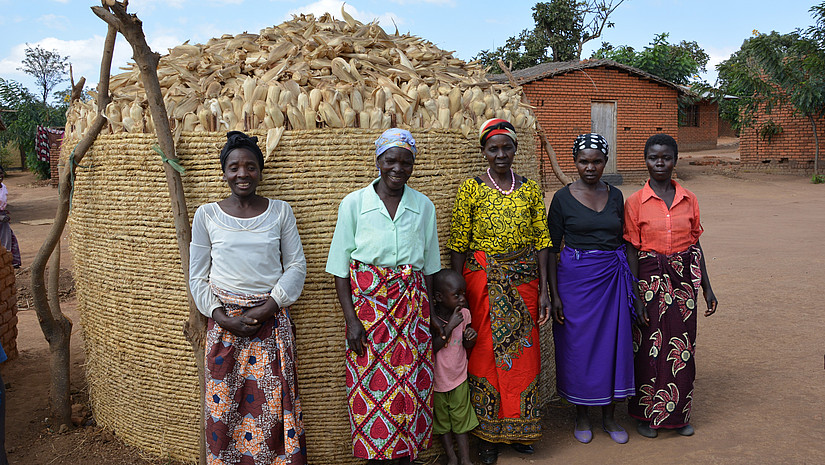Decent work in agri-food value chains
Main Research Questions
- To what extent do the governance structures of voluntary sustainability standards provide preconditions to achieve Decent Work for both women and men in agri-food value chains?
- Which are the governance gaps in these standards and how can they be addressed?
Abstract
Voluntary sustainability standards have been advertised as a mechanism to make trade of agricultural goods, especially from the Global South, more beneficial to farmers, workers and ecosystems, in line with ILO’s Decent Work agenda. However, several weaknesses of these voluntary market-based standards have been identified, for example their mixed effectiveness and impacts on the ground, and their weak enforcement of social standards. Acknowledging the interconnectedness of the Decent Work agenda with SDG5 on “gender equality”, we propose a study seeking to better understand the governing structures supporting the individual standards and how they influence the achievement of decent work in agrifood value chains.
Literature Review
Voluntary sustainability standards for food products have proliferated widely, and often cover requirements for decent work at the farm and processing level (e.g. Bennett 2017, Smith et al. 2019). The nature of these initiatives may be voluntary, as opposed to mandatory public laws or trade regulations, but they are often binding for producers in a practical sense. Voluntary sustainability standards function as trade barriers, or enablers, for exports to other countries, especially those with large markets for sustainably produced commodities (Bolwig et al. 2011; Lee et al. 2012). Much of the existing literature focuses on the effectiveness of the standards themselves and their accessibility and impacts on smallholder farmers, farm workers and their communities. Research also shows that the progress toward achieving decent work for women and men equally has been slow, despite ongoing efforts and campaigning by the standard-setting initiatives (McCarthy and Moon 2018, Scherrer and Verma 2018). Where the effectiveness of achieving decent work through these standards is concerned, we identify a gap in the literature: we still know little about the extent to which the statutes and governing regulations, which together make up the governance level of these standards, consider gender equality as a prerequisite for achieving decent work. We aim to close this gap by laying out and comparing the “gender order” (regulations and laws) and “gender regimes” (organizational goals, values and practices) (McCarthy and Moon 2018) influencing the achievement of decent work. This will result in an extension and potential generalization of the case study by McCarthy and Moon (2018). It will allow conclusions about the growing field of voluntary sustainability standards where the protection of human and workers’ rights has received more attention as a result of increased public regulation. The study would also improve the understanding of “upgrading” processes in agrifood chains, especially how to promote “social upgrading” and decent work through standards (Matheis and Herzig 2019).
Methodology
Before analyzing the voluntary standards’ sample, we will provide a literature review focusing on the standards’ evidence from Asia, especially South and Southeast Asia, as our chosen regional focus. We proceed with a systematic analysis using the standards’ available information, supplemented by telephone or online interviews with voluntary sustainability standards experts to verify the secondary information.
For the selection and analysis of standards in the light of the Decent Work agenda, we will develop a detailed typology based on the study by Bennett (2017). One of the selection criteria relates to the geographic scope of the voluntary sustainability standard (see above). Other criteria include, for example, their explicit focus on social goals, such as better working conditions, and a multi-stakeholder governance structure.
Overall, we contribute to empirical evidence on decent work strategies in voluntary sustainability standards, as to whether they live up to the claim of gender equality. The findings will show how organizational structures could be revamped to better include potentially marginalized perspectives.
- Bennett, E. A. 2017. Who Governs Socially-Oriented Voluntary Sustainability Standards? Not the Producers of Certified Products. World Development 91: 53–69.
- Bolwig, S., Ponte, S., Riisgaard, L., Du Toit, A., & Halberg, N. 2011. A methodology for integrating developmental concerns into value chain analysis and interventions. In J. Mitchell & C. Coles (Eds.), Markets and rural poverty: Upgrading in value chains (pp. 21–45). London: Earthscan.
- Lee, J., Gereffi, G., & Beauvais, J. 2012. Global value chains and agrifood standards: challenges and possibilities for smallholders in developing countries. Proceedings of the National Academy of Sciences of the United States of America 109: 12326–12331. doi:10.1073/pnas.0913714108.
- Matheis, T.V., Herzig, C. 2019. Upgrading products, upgrading work? Interorganizational learning in global food value chains to achieve the Sustainable Development Goals. GAIA - Ecological Perspectives for Science and Society 28 (2): 126–134. DOI: 10.14512/gaia.28.2.11.
- McCarthy, L., & Moon, J. 2018. Disrupting the Gender Institution: Consciousness-Raising in the Cocoa Value Chain. Organization Studies 39: 1153–1177. doi:10.1177/0170840618787358.
- Scherrer, C., S. Verma (Ed.). 2018. Decent work deficits in southern agriculture: Measurements, drivers and strategies. Labor and globalization volume 11. Augsburg, Munich: Rainer Hampp Verlag.
- Smith, W. K.; Nelson, E.; Johnson, J. A.; Polasky, S.; Milder, J. C.; Gerber, J. S. et al. 2019. Voluntary sustainability standards could significantly reduce detrimental impacts of global agriculture. In Proceedings of the National Academy of Sciences of the United States of America 116 (6), pp. 2130–2137. DOI: 10.1073/pnas.1707812116.

